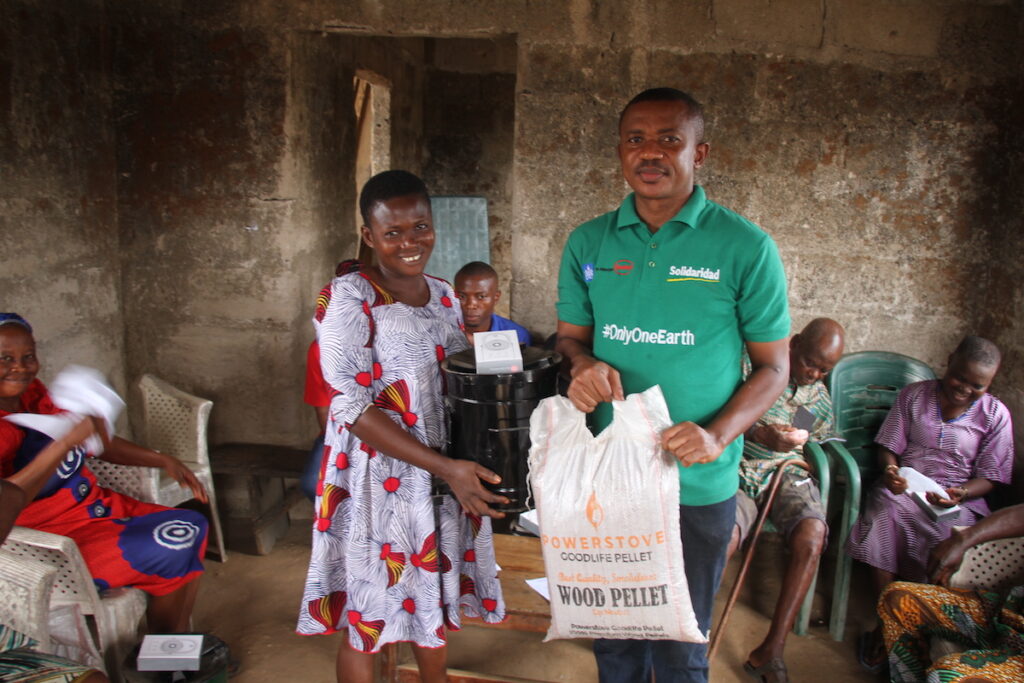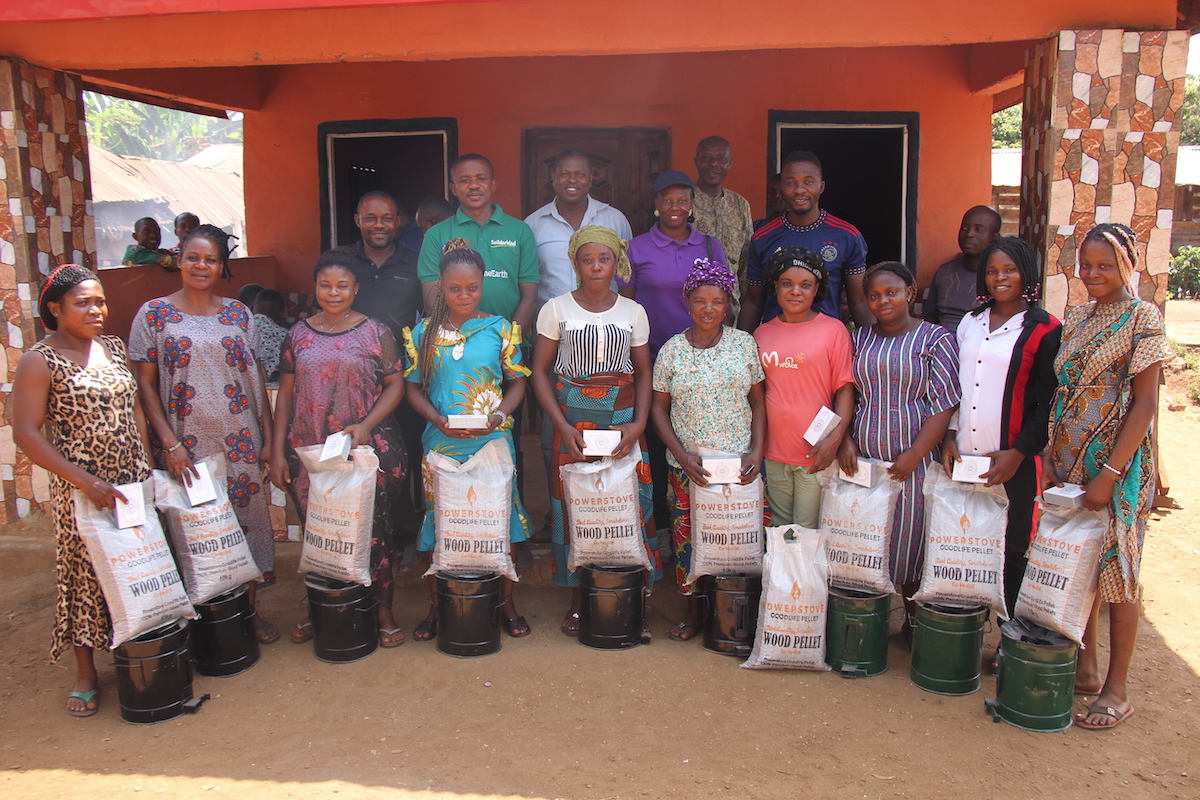Traditional stoves have many disadvantages. They consume significant quantities of wood, affect air quality in the home, and produce emissions that contribute to climate change.
Mitsubishi Corporation has teamed up with Solidaridad to distribute environmentally friendly cookstoves to smallholder cocoa farmers in the states of Ondo and Cross River with the goal of reducing greenhouse gas emissions and reliance on firewood for fuel.
Unlike traditional cookstoves, the new stoves are fueled with pellets made from farm residues. So far, 200 of the improved cookstoves and pellets have been distributed to smallholder women cocoa farmers from 12 rural communities in the two states.
Easy to use, easier on the pocket
Along with being more efficient and helping to reduce the workload of harvesting firewood, the use of energy-efficient cookstoves also contributes to climate change mitigation.
“To stimulate usage of the stoves, Solidaridad is supporting the manufacturer of the cookstoves to estimate the value of carbon credits related use of the stove and provide discounts on the next purchase of pellets,” said Kenechukwu Onukwube, Programme Manager at Solidaridad in Nigeria.
The fuel pellets, which are made from dried coconut shells, provide an easy-to-use, efficient energy source at a low-cost. Kenechukwu shared that the low cost combined with carbon credit discounts will enable users to save on fuel and improve the income of smallholder farmers.

A healthy alternative
Improved cookstoves emit less smoke compared to traditional cookstoves and reduce exposure to open fires, making it a healthier alternative for families in the programme.
“I am excited about the cooking stove as it will improve my health. My physician had cautioned me to stop exposing myself to smoke, after complaints of constant migraine, now I can cook with a smokeless stove,” said Mary Ovat, a participant from Cross River.
Juliet Enang added that the stove will save her the stress of harvesting wood for cooking, especially during the rainy season.
“Most times, it is difficult to cook for my family during a heavy downpour because my kitchen is detached from the main building. This stove will solve that challenge as it is safer and can be placed anywhere for cooking,” said Juliet.
Mitsubishi Corporation funded the distribution of the energy-efficient cookstoves as part of its efforts to contribute to the environmental, social and economic development of the communities and regions where the company operates.
“We are very pleased to work with Solidaridad to support projects that reach people in rural areas to aid conservation efforts, improve quality of life, and contribute to an inclusive society,” says Makoto Saito, Managing Director of Mitsubishi Corporation in Nigeria.

